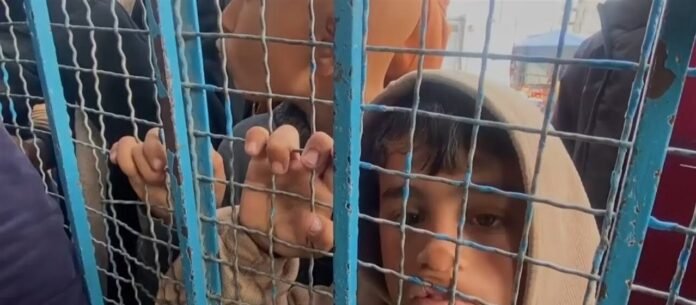Israel’s month-long blockade has crippled Gaza—bakeries shut down, hospitals ration painkillers, and food is running out
Gaza has descended into an unprecedented humanitarian catastrophe as Israel’s month-long blockade continues to devastate the region. The blockade has cut off essential supplies, bringing the city to its knees. Bread, a staple for millions, is now scarce after all bakeries were forced to shut their doors, leaving Gaza’s population in the grip of starvation. With hospitals rationing painkillers and antibiotics, the desperate situation is only growing worse by the hour.
This blockade, which began in early March, has become the longest and most brutal of Israel’s 18-month-long war against Hamas. As the Muslim holiday of Eid al-Fitr passed, many residents found themselves with empty stomachs instead of festive feasts. Gaza’s streets are eerily silent, with markets stripped of fresh vegetables, and many shops standing closed, their shelves barren.
One of the most shocking impacts has been on Gaza’s bakeries. Nearly all of the bakeries supported by the World Food Programme (WFP) are now closed, victims of a catastrophic shortage of flour and fuel. For many, this is a death sentence—bread is the most important food staple, and without it, Gaza faces an escalating famine. As one distressed baker in Gaza City explained, “Without bread, how will we survive? The situation is dire—there will be starvation much worse than before.”
Embed from Getty ImagesThe blockade’s toll is especially tragic for families like that of Um Ali Hamad, who fled from Beit Lahia. With no access to basic food items like sugar, oil, and even tomatoes, her family is barely surviving. “I can’t find a meal for my grandchild,” she said, choking back tears. “I can’t even find milk or diapers for him.”
Meanwhile, hospitals are fighting an uphill battle to save lives, but they too are running out of supplies. Trauma patients are being treated with the barest of resources, and critical medications like antibiotics are in dangerously low supply. Doctors are being forced to make impossible decisions. Dr Mark Perlmutter, an American surgeon working in Gaza, described how he had to perform life-saving surgery without the most basic equipment: “I had to use drill bits to fix a fracture. There was no working X-ray machine, no clean water, no soap to wash my hands,” he said. Infection is spreading rapidly due to the unsanitary conditions.
As Gaza’s situation becomes increasingly grim, the international community is sounding the alarm. UN officials have reported that their supplies are running out, with food aid expected to last no more than a few days. Charity food handouts are a thing of the past, and many food kitchens supported by international NGOs have ceased operations, unable to provide for those in need.
The World Food Programme has warned that it may only be able to distribute hot meals for another two weeks before its supplies completely vanish. After that, emergency stocks of fortified nutritional biscuits will be the last resort for the 415,000 people who remain dependent on aid.
The situation has led to an international outcry, with human rights organisations calling the blockade a violation of international law. Despite Israel’s claim that there is enough food to last for a while, the UN dismisses this as ridiculous, insisting that the reality is far worse.
Israeli officials, however, argue that the blockade is necessary to prevent Hamas from acquiring materials to continue its attacks. This ongoing crisis shows no sign of abating, and with no breakthrough in sight, Gaza’s residents continue to face unimaginable suffering.
